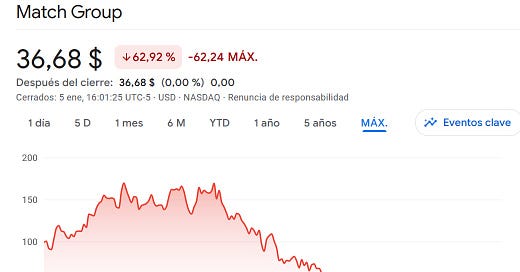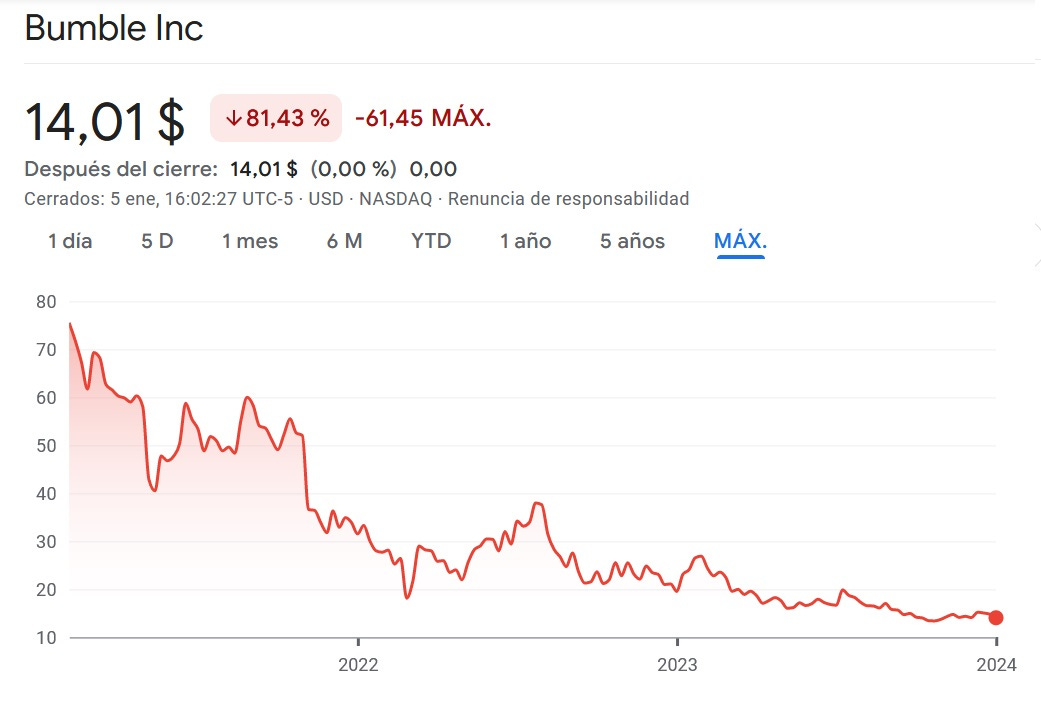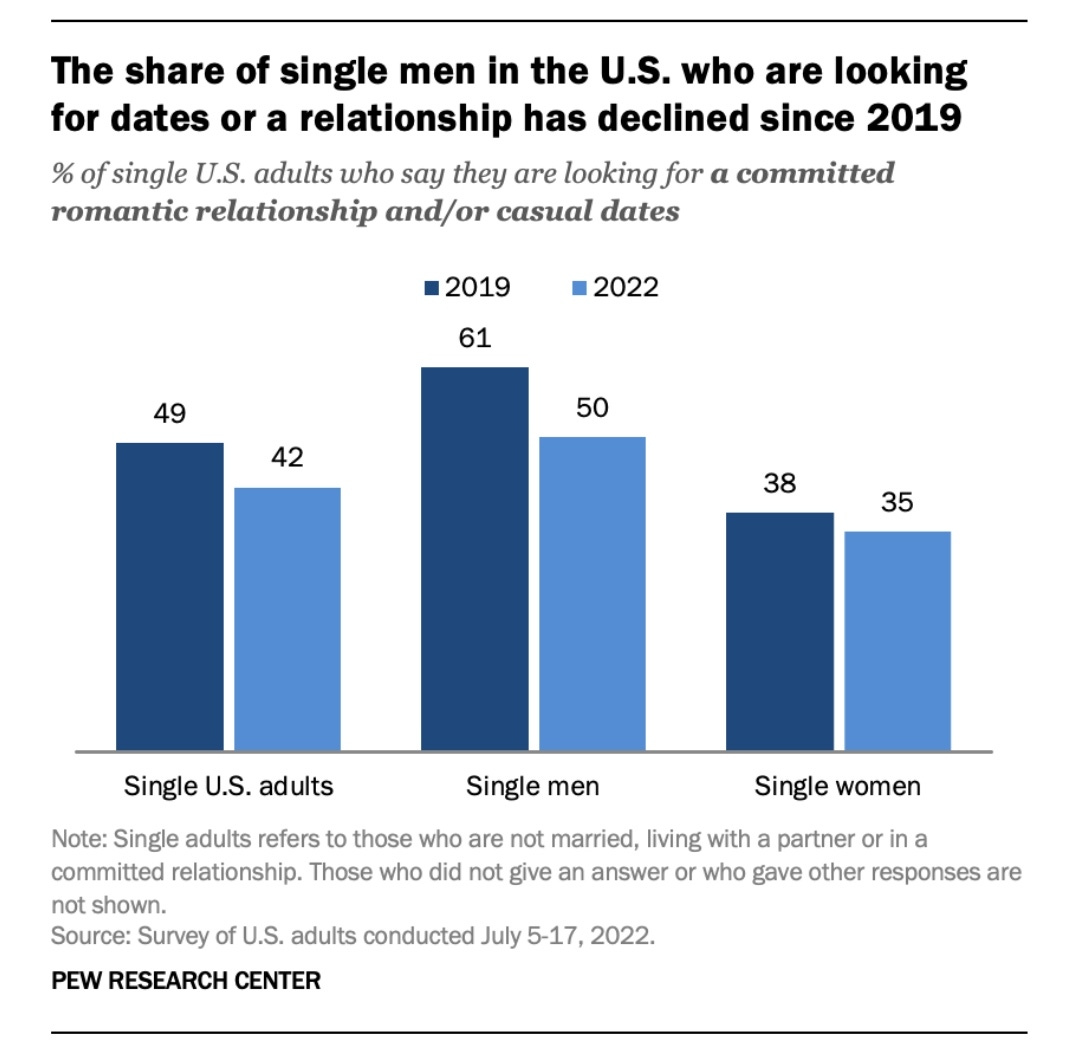Online dating apps were great for investors. For users, not so much
Meanwhile, a global casual sex crisis is happening
Once the old 2023 has come to an end, it's time for everyone to take stock of how the year has gone. In the case of dating apps, the last few years couldn't have gone any worse, judging by their share prices. It doesn't matter that Tinder has come up with ideas like Tinder-Select (the $500 monthly subscription), or that there is more and more advertising for these platforms on television. In the following images, you can see how the share prices of Match Group (owner of Tinder, OkCupid or Meetic, among others), or its competitor, Bumble:
The drop that these investments have been having since 2021-2022 is astounding. The pandemic and confinement made a large part of the population use these platforms compulsively, but once that scenario faded, the trend has not been maintained and all dating apps have been losing market share, users and profits. Paradoxically, we should also be aware of the crisis of casual sex and decrease of hook-up dates across the globe, especially among young people.
Those who have been reading this blog for a while, already know that I have always defended that the purpose of Tinder is not that you find a partner: their aim is that you tinder. These applications do not fulfill a function of an NGO or a good friend who introduces you to that special person. No. These apps are out to make money. A lot of money.
The fact is that Tinder has been worried for several months now about the loss of credibility of its shareholders. If this type of social applications became sadly famous for the frugality of relationships, disappearances, lies, betrayals and frustration in finding a partner, now the bosses of Match Group have decided that they have to turn the application around, and ensure that the matches generated in this social network lead to more stable, serious and committed relationships. It seems that this is the focus of today's teenagers, and that leads them to distrust social networks more and more.
But perhaps it's more complicated than that. Let's look at the following graphs, taken from Pew Research, which show a change in trend, and that young (and not so young) people who are single have no intention of changing their status:
Von Neumman, probably one of the most brilliant scientists to have passed through this world, stated that if people do not believe that mathematics is simple, it is only because they do not realize how complicated life is..
There are no simple reasons for complex realities, nor can I give in this blog a global answer to the phenomenon that is happening in our societies. Dating apps had long since become an inhospitable place, a squid game without murders.
“Emotional, romantic and sexual relationships are transforming these days. We have a lot of likes, opportunities and interactions, but they are all superficial and none of them hook us, so we live in the world of loneliness." "These liquid relationships, moreover, are combined with the era of individualism, where one is at the center of everything. There are new ways of flirting, apps specialized in connecting people or that without having that task are used for it, from Instagram to BeReal. The apparent possibilities for connection are so enormous that we move on to the next one as soon as we can. We don't reply, we scorn what hasn't entered our eyes and ignore it. Many flirt from this perspective."
I'm slightly convinced that one of the reasons for the decline in casual sex will be the easy access to PornHub portals and similar. But I also have my doubts about the rise of chat assistants like ChatGPT, or parasocial relationships like the ones we have with youtubers or podcasters have something to do with it.”
Nobody said that being integrated in this society was easy.










Para unos cuantos, el declive del mundo occidental... atomización social, sin reposición poblacional, sin futuro...